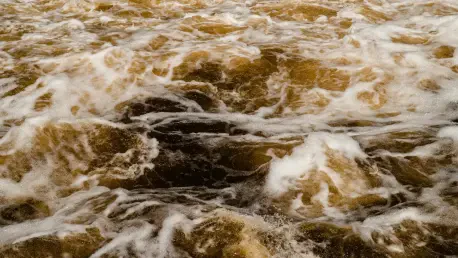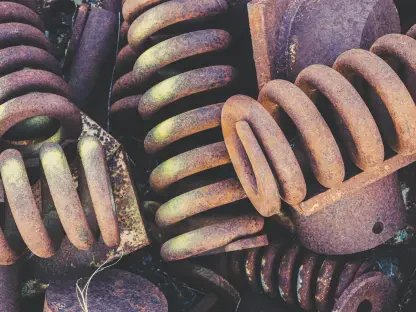I’m thrilled to sit down with Christopher Hailstone, a seasoned expert in environmental conservation with a deep focus on river ecosystems. With years of experience in energy management and utilities, Christopher brings a unique perspective on the intersection of industrial impacts and natural resource protection. Today, we’re diving into the troubling issue of foam pollution in the River Thet, a rare chalk stream in Norfolk. Our conversation explores the devastating effects on wildlife and the community, the urgent need for accountability, and the broader implications of such environmental incidents.
Can you paint a picture of what you encountered when you first saw the thick white foam on the River Thet this past Saturday?
When I first approached the river, it was almost surreal. This thick, white foam blanketed stretches of the water, looking like a layer of shaving cream just sitting there. Up close, it had this unnatural, almost frothy texture, and it covered a significant portion of the river through Thetford. What hit me hardest was seeing dead fish floating among it. The water itself seemed lifeless in those areas, with no movement or typical shimmer. It was a stark reminder of how quickly pollution can alter a natural space.
How has the local community responded to this foam pollution, especially since it’s the second incident in just a year?
The reaction has been a mix of frustration and anger. People here feel a deep connection to the River Thet, and seeing it polluted again so soon after the last incident feels like a betrayal. I’ve heard folks talking about how they can’t take their kids or pets near the river anymore, and activities like swimming or even just walking along the banks have been put on hold. There’s a real sense of loss, especially among those who rely on the river for recreation or just as a peaceful spot in their daily lives.
The impact of this incident has been described as devastating. Can you explain why this is so upsetting for both the community and the wildlife?
It’s heartbreaking on multiple levels. For the community, the river is more than just a waterway—it’s part of their identity. People feel helpless seeing it turned into a toxic zone where they’re warned not to even let their pets drink the water. For wildlife, the damage is immediate and severe. We’ve seen fish dying, and the ecosystem takes a massive hit when pollutants disrupt the food chain. Birds and other creatures that depend on the river for sustenance are either disappearing or suffering from the lack of clean resources. It’s a ripple effect that touches everything.
Given that the River Thet is a rare chalk stream, can you help us understand why protecting it is so critical?
Chalk streams are incredibly special because they’re a rare type of river, with almost a third of the world’s supply right here in East England. They’re fed by underground aquifers, which give them crystal-clear water and a stable temperature year-round. This creates a unique habitat for diverse species of fish, plants, and insects. Pollution like this foam can devastate that delicate balance, clogging the water and harming the very organisms that make chalk streams so vital. Losing even one of these rivers to repeated pollution would be a global tragedy.
You’ve noted that birds have vanished from the river since the foam appeared. Can you tell us more about that impact?
Normally, the River Thet is alive with bird activity—kingfishers darting over the water, herons standing patiently along the banks, and smaller birds flitting about for insects. Since the foam showed up, it’s like they’ve just vanished. I think it’s a combination of the toxic environment and the lack of food sources like insects or fish. Whether they’ll return depends on how quickly the river can recover, but if the pollution lingers or keeps happening, we might see a permanent shift in their behavior or habitat. It’s a worrying sign.
There’s a perspective that nature can bounce back quickly, but the short-term damage is significant. Can you unpack what those immediate effects look like?
Right now, the short-term effects are glaring. The foam has killed off fish in the affected areas, and the water quality has plummeted, making it uninhabitable for many species. Invertebrates, which are crucial to the food web, are also taking a hit, and that impacts everything up the chain. For recovery, if the pollutant is fully cleared and no further incidents occur, fish and other wildlife might start to return in a few months. But it’s not just about numbers—it’s about rebuilding a balanced ecosystem, and that can take much longer if the damage is deep.
There’s a strong push for legal action against those responsible for this pollution. Why do you believe such measures are necessary?
Legal action is crucial because without consequences, there’s no deterrent. We’ve seen pollution incidents on the River Thet before, and if those responsible aren’t held accountable, it sends a message that this is acceptable. I’m not aware of significant penalties being enforced in past local cases, which might be why we’re seeing repeat offenses. Strong fines, mandatory cleanup efforts, or even stricter regulations on nearby industries could make a difference. It’s about protecting our water for everyone who depends on it, now and in the future.
Looking ahead, what is your forecast for the future of chalk streams like the River Thet if incidents like this continue?
If these pollution events keep happening without serious intervention, I’m deeply concerned about the future of chalk streams like the River Thet. We could see permanent damage to their ecosystems—fewer species, degraded water quality, and a loss of the unique characteristics that make these rivers so special. Beyond that, the knock-on effects could spread to nearby waterways and even impact local biodiversity on a larger scale. I think we’re at a tipping point where action now could save these treasures, but continued neglect might lead to losses we can’t recover from.









